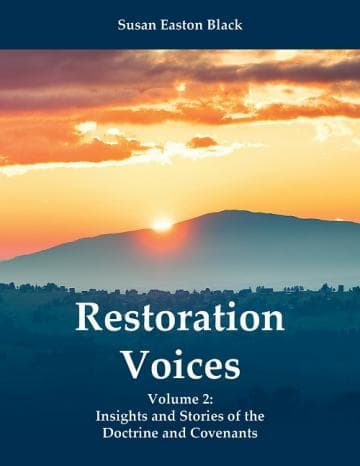Book
140 Chapters

On February 17, 1834 the Prophet Joseph Smith organized the first high council in the Church at Kirtland, Ohio. According to the Kirtland High Council Minute Book, at the organizational meeting the prophet spoke of
the order of councils in ancient days as shown to him by vision [and] the law by which to govern the council in the Church of Christ. Jerusalem was the seat of the Church Council in ancient days. The apostle, Peter, was the president of the Council and held the keys of the Kingdom of God on the earth [and] was appointed to this office by the voice of the Savior and acknowledged in it by the voice of the Church.[1]
The Minute Book also revealed that the Prophet Joseph explained that ancient councils served as a type of judicial court and the Kirtland High Council was a judicial body:
Every counsellor when he arose to speak, should speak precisely according to evidence and according to the teaching of the Spirit of the Lord; that no counsellor should attempt to scorn the guilty when his guilt was manifest. That the person accused before the high council had a right to one half the members of the council to plead his cause in order that his case might be fairly presented before the President that a decision might be rendered according to truth and righteousness.[2]
Of the judgment that rested with the high council, the Prophet Joseph said:
No man is capable of judging a matter, in council, unless his own heart is pure; and that we are frequently so filled with prejudice, or have a beam in our own eye, that we are not capable of passing right decisions. ... Our acts are recorded, and at a future day they will be laid before us, and if we should fail to judge right and injure our fellow-beings, they may there, perhaps, condemn us; there they are of great consequence, and to me the consequence appears to be of force, beyond anything which I am able to express.[3]
The differences between the Kirtland High Council and other such councils today are (1) the First Presidency was the presiding authority of the council and (2) the council had jurisdiction outside of stake boundaries. It was not until high councils were organized within stakes that stake presidencies presided over discussions and deliberations and their jurisdiction outside of stake boundaries ended.
Today men called to serve on stake high councils have a judiciary function. Under the direction of stake presidents, they also teach, train stake members, and supervise stake programs.
In his general conference address of October 2001, President James E. Faust told the story of Henry Eyring:
This story is about ... the great scientist Henry Eyring, who served on the Bonneville Stake high council. He was responsible for the welfare farm, which included a field of onions that needed to be weeded. At that time, he was nearly 80 and suffering from painful bone cancer. He assigned himself to do weeding even though the pain was so great that he pulled himself along on his stomach with his elbows. The pain was too great for him to kneel. Yet he smiled, laughed, and talked happily with the others who were there that day weeding that field of onions. I now quote what Elder [Henry B.] Eyring said of this incident:
“After all the work was finished and the onions were all weeded, someone [said to] him, ‘Henry, good heavens! You didn’t pull those weeds, did you? Those weeds were sprayed two days ago, and they were going to die anyway.’
“Dad just roared. He thought that was the funniest thing. He thought it was a great joke on himself. He had worked through the day in the wrong weeds. They had been sprayed and would have died anyway.
“... I [asked] him, ‘Dad how could you make a joke out of that?’ ...
“He said something to me that I will never forget. ... He said, ‘Hal, I wasn’t there for the weeds.’”[4]
Book
140 Chapters
Items in the BMC Archive are made publicly available for non-commercial, private use. Inclusion within the BMC Archive does not imply endorsement. Items do not represent the official views of The Church of Jesus Christ of Latter-day Saints or of Book of Mormon Central.